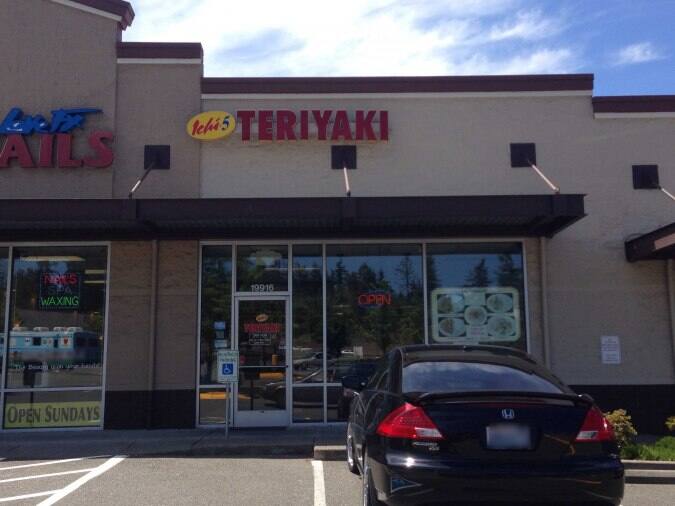Table of Content
Some people with disabilities can live in their own homes or apartments but need assistance with certain activities like cooking, cleaning, and shopping. If there are no family caregivers or other volunteers available, outside assistance may be necessary. HUD’s housing choice voucher program helps elderly, disabled, and very low-income families pay for private-market housing. Eligibility is typically limited to those with a household income of 50 percent or less than the median income for the county or metropolitan area in which they live.
In general, seniors will face more restrictions as they age in relation to mobility, caring for themselves, or even attending to their health. Assisted living communities are the support structure disabled seniors need when they are no longer able to live alone. Assisted living communities are created to care for the seniors in our lives who require dedicated assistance with their regular routine. This can be as simple as help taking medications on time or even intermittent nursing care. For seniors who suffer from a mental or physical disability, the transition from home to an assisted living facility can be difficult.
What Services Should You Expect in An Assisted Living Home for Disabled Seniors?
The Ann Harding Cheshire Home is a residential care facility for adults, between the ages of 18 and 54, who have a physical disability. Group homes are usually either private, nonprofit facilities or operated by local governments. Privately run group homes don’t have government supervision unless they receive funding from the government. A nonprofit or government-run facility will follow certain rules and regulations and determines who receives the services. This includes information provided at the time of registering to use our Website or subscribing, requesting, or using services or products we offer.
Assisted living facilities are long term care homes for adults who have special needs. In most cases, these types of homes house elderly residents, though, any adult may enroll in an assisted living facility if their needs qualify them for care. Assisted living provides non-skilled care such as help with cleaning, bathing, medication administration, and meals. There are facilities that also cater to adults who are mentally disabled, physically disabled, or both.
What Are Assisted Living Facilities?
The cost of home ownership through a special needs trust includes the price of the home, any necessary home modifications needed and hiring a caregiver . The cost of hiring a caregiver typically runs between $20 and $40 per hour. Skilled nursingmay seem costly, but it represents the lowest cost setting for 24-hour professional skilled nursing and rehabilitative care running between $4,000 to $8,000.
All assisted living homes are intended to be happy places that are socially engaging for seniors while still offering them a wealth of supportive features. Homes that offer specific care for disabled seniors should also offer the same services, but more refined to meet the specific needs of seniors with disabilities. There is a lot of information out there that deals with senior living, but not very much that addresses assisted living for both physically disabled adults and mentally disabled adults. A disabled senior may have behavioral, physical, or mental limitations that classify them as being afflicted with a disability.
Section 8 Housing
For example, a person who is wheelchair-bound has an obvious disability, while there may be other seniors who have chronic pain as a disability, which is not readily visible. They may be a privately run for-profit business, a nonprofit facility, or run by the government. Privately run group homes do not have government oversight unless they receive government funding. A nonprofit or government-run facility must adhere to certain rules and regulations, which can determine to whom they may provide services. Special needs trusts can own homes for their beneficiaries or pay for a beneficiary’s rent in a private apartment. N many cases, this is a very flexible option for the beneficiary, since the trust can also pay for services to help the beneficiary live independently.
HUD offers a state-based inventory of units for the elderly and persons with disabilities, which you can use to identify facilities that offer subsidized housing. Independent living offers a home or apartment in a community designed for seniors and people with disabilities. Residents live in private apartments or homes with access to common areas. It offers convenience and a low-maintenance lifestyle, but does not have the same level of support as assisted living.
People who are financially eligible can get assistance paying for room and board at an assisted living facility using OSS. This is in addition to Social Security Income payments and is paid directly to the community. The amount of OSS given to the resident is based on his or her income and can range from a few dollars to nearly $1,000 per month depending on income and state policies. Medicare is a national health insurance program generally available to seniors 65 and older, or younger people with disabilities or permanent kidney failure requiring dialysis or a transplant. Adult family homesusually offer the lowest cost of assisted living options with the average price falling between $1500 and $4,500. Specific care needs may have an additional cost, and varying care needs are offered in the home.

Now, thanks in part to societal changes and decades of litigation, most people with special needs, including those with very severe special needs, live in some type of community setting. We also use different external services like Google Webfonts, Google Maps, and external Video providers. Since these providers may collect personal data like your IP address we allow you to block them here. Please be aware that this might heavily reduce the functionality and appearance of our site. According to SpecialNeedsAnswers, “The Section 8 program provides vouchers for people with low incomes to obtain housing in the community”.
They’ve been further traumatized through rejection and separation from their parents. Our focus is on nurturing and loving them back into wholeness, as best as we can. When a child with special needs is setting aside money for college, a 529 Plan may not be the best option. On Friday 11 December we held an end of year staff braai, which included our Long Service Awards.
Moving into an assisted living community should not mean giving up their social life. Look for an assisted living location that is not too far away from the senior’s friends as well as one that is nearby other businesses and shops. Staff, security, and caregivers should be trained in the proper care of seniors who suffer from disabilities. Assisted living homes do not offer skilled nursing care, but taking care of an aging senior and caring for a senior with a disability are vastly different. Ask about certifications and training during your visit and make a point to stop by unannounced to observe resident and staff interaction. The caregivers should be very patient, understanding and gentle with seniors, and even more so with those who suffer from disabilities.
ChildServe’s staff members promote skill development, independence, and decision making as appropriate for each child’s hopes, dreams, and needs. There are many federal housing resources available to persons with disabilities. These include affordable rental housing and supportive services to help disabled persons maintain independence and involvement in the community. This guide will provide information about different housing resources available to persons with disabilities looking for affordable housing. Read below to find out how to get more information and apply for these programs.
Many times, families will forgo their own happiness to ensure that their senior loved one is given the full support they need to thrive. Assisted living homes for the mentally or physically disabled can provide a lifeline to families in need of respite. If a person with special needs requires around-the-clock skilled medical care, he may need to live in a skilled nursing facility if it is impossible to provide that care at home. If a person with special needs requires 24/ 7 medical care, they may need to live in a skilled nursing facility if it’s not possible to provide that care at home.
Assisted Living for Disabled & Handicapped Seniors
The first is Supplemental Security Income , which is available for people with limited income and assets. The second program provides state-based benefits that can offer financial support for assisted living. This program is either called Optional State Supplements or State Supplementary Payments.


No comments:
Post a Comment